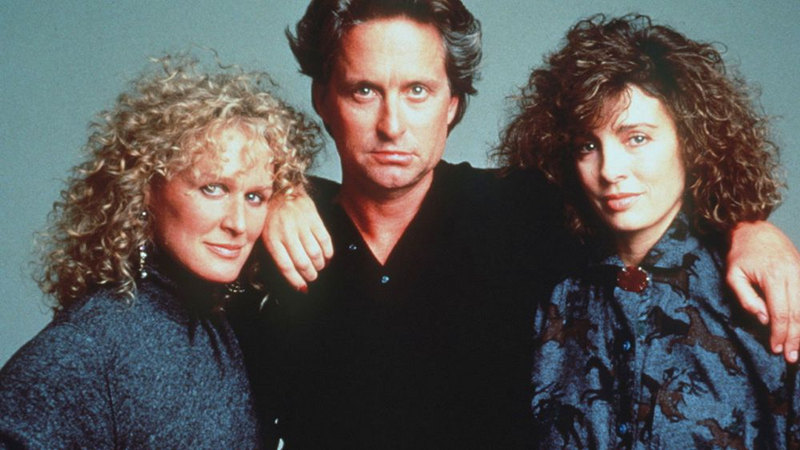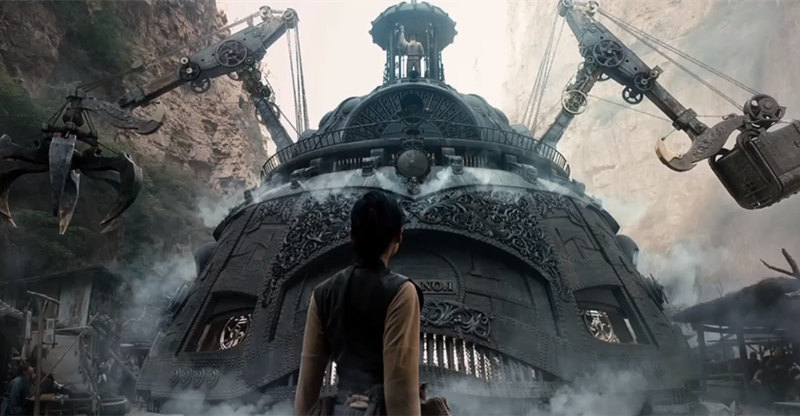“Information is power.”
In the past few decades, Clint Eastwood has become one of America’s finest directors, and I admit I’m a big fan of his movies. Early on he became a Hollywood icon as a movie star, and now he’s almost as important as a director. But even the best directors can sometimes produce a misfire. Such is the case with his 2011 production “J. Edgar.”
How big a miscalculation was “J. Edgar”? In a theater, it put my movie buddy to sleep. And he’s a retired history teacher. Any movie on a historical subject that can put a history teacher to sleep has got to be doing something wrong.
Not that “J. Edgar” is a bad movie, you understand. Eastwood is incapable of making a bad movie, and, indeed, “J. Edgar” displays all the hallmarks of good filmmaking from its acting to its production values. It’s just that the subject matter itself seems thin, as though Eastwood and screenwriter Dustin Lance Black weren’t quite sure how to approach their topic.
Here’s the thing: J. Edgar Hoover was one of the most fascinating and enigmatic characters in American history; so you’d think it would make a fascinating and perhaps compellingly enigmatic movie. Unfortunately, it’s only the enigmatic part that comes through in Eastwood’s film. It’s a puzzling, ambiguous motion picture that never takes much of a stand on its material. Instead, it comes across as a very well-made History Channel biopic.
How can this be? After all, J. Edgar Hoover was the first director of the FBI, continuing in the job from 1924 until his death in 1972. During that time, he was probably a momma’s boy, living with his mother until her death. He was probably gay (although he kept his private life absolutely private), never marrying and spending most of his free time with his best friend, Clyde Tolson. He probably had more dirt on more important people, like Presidents of the United States for almost fifty years, than any man who ever lived. He was probably the object of blackmail by the Mafia, since he never even admitted their existence until late in his career. And he was probably the most powerful and influential man of his generation.
There’s enough information about Hoover to fill out several lengthy movies, yet Eastwood barely touches the surface of any of these facets of the man’s life, providing only that data that is well-known public knowledge. Perhaps it’s Eastwood’s inherently conservative bent that prevents him from ever opening up completely. He refuses to sensationalize a point, which is to his credit, yet in “J. Edgar” he fails to make any particular point at all. Instead, he shows us Hoover narrating the story of his own life, which is necessarily going to give us a softened picture of the man. Eastwood seems to want neither to glamorize nor demonize Mr. Hoover, and in not doing either, he gives us a central character we neither like nor dislike. The character is just there, hanging out as objectively as possible. This makes for a good impartial biography but not for a great or memorable film. Audiences like me want meat on their movie bones; we want to learn something we’ve not known before or to be entertained by a strong dramatization of something we did already know. Eastwood, though, refuses to reveal any new substance or to overdramatize any part of Hoover’s life. The result is a wishy-washy kind of film that, given its extreme length (137 minutes), too often just lulls one off.
Then there’s the matter of every director’s favorite actor, Leonard DiCaprio, in the lead role. He does fine without inspiring any particular admiration for the actor or the character he’s playing. Since DiCaprio doesn’t bear even the slightest resemblance to the actual Hoover, one can only surmise that Eastwood chose the actor because of his name recognition and because DiCaprio is still youthful enough in appearance to portray the main character from his early twenties to his death, given various degrees of makeup.
The supporting cast actually outshine the star, especially Judi Dench playing Hoover’s mother, Naomi Watts as his secretary, and Armie Hammer as his longtime friend and companion. Indeed, it is these three characters who provide the basis for Hoover’s story, far more so than anything concrete about the man’s career, which is really only skimmed over. As Hoover’s mother, Anna Marie Hoover, Ms. Dench is a commanding presence as the person who obviously had the strongest influence on Hoover’s life. According to the movie, Hoover wanted more than anything else to live up to his mother’s expectations. When he couldn’t do that (in his own mind), it appears to have frustrated his emotional well-being and left him unfulfilled. As Hoover’s secretary, Helen Gandy, Ms. Watts has the unenviable task of growing old along with Hoover, and I’m afraid that while Ms. Watts puts in a good performance, her makeup in old age leaves a lot one might desire. As Clyde Tolson, Armie Hammer has the hardest task. Was he gay, and were he and Hoover a couple? Eastwood coyly skips around the subject, hinting at but never fully disclosing their relationship, another reason the film seems so shallow, revealing so little.
In the movie Hoover tells most of the story himself, dictating his autobiography to an assistant, yet no one ever found a finished manuscript, and Eastwood’s movie may only be using the autobiography business as a plot device to narrate the tale. In any case, it gives Hoover the license to exaggerate and embroider the events in his life, leaving us to wonder just what in the film we can genuinely believe.
On the more positive side, Eastwood’s original music for the film overshadows his direction and any of the acting; the music is simple, direct, and highly effective, as is his use of the tune “Little White Lies” as an appropriate musical backdrop throughout the film and at the end. What’s more, Eastwood’s attention to period detail is also exacting, and never for a minute do we doubt the era we’re watching. So, yes, the production is up to par. Now, if only the story itself had been more powerfully compelling.
Was Hoover a defender of truth, justice, and the American way, as he claimed? Or was he a tyrant and corruptor of truth, justice, and the American way? We may never find out, and certainly Eastwood’s movie isn’t going to help us with the answers.
Video:
The Blu-ray disc captures the movie’s 2.40:1 screen ratio using a dual-layer BD50 and an MPEG-4/AVC codec. The image looks about the same as I remember it from a movie theater, meaning it’s often dark and a little soft, the color frequently drained, particularly during the indoor shots and during the scenes set in the Twenties, Thirties, and Forties, perhaps to remind us of the black-and-white footage of the day or at least to evoke that feeling. Still, in full daylight scenes, the image is quite bright, and hues can be rich and deep. Detailing is mostly good, and contrasts stand out vividly.
Audio:
Using lossless 5.1 DTS-HD Master Audio, Warner engineers capture a subtle but effective soundtrack. (Eastwood’s use of sound is almost always one of the best qualities of his pictures.) While the Wife-O-Meter and I were watching the Blu-ray, an opening bomb blast pretty much jolted both of us from our seats. There is an enormous dynamic range and impact involved in the soundtrack, even though there is little beyond that initial explosion to show it off. Yet there is an abundance of nuanced surround effects that prove the sound as effective as it can be.
Extras:
The Blu-ray disc’s primary extra is an eighteen-minute documentary, “J. Edgar: The Most Powerful Man in the World.” It features commentary on the man by the filmmakers involved in the “J. Edgar” movie, and in it Eastwood admits he doesn’t really know all that much about Hoover’s private life; yet he made a film about the guy. Odd.
The extras conclude with a mere fourteen scene selections; English and French spoken languages; French and Spanish subtitles; and English captions for the hearing impaired.
Lastly, because the movie arrives in a two-disc Combo Pack, it includes a Blu-ray disc, a DVD, and an UltraViolet Digital Copy, the registration code expiring on February 21, 2014. The two discs come housed in a flimsy BD Eco-case, further enclosed by a light-cardboard slipcover.
Parting Shots:
Clint Eastwood is incapable of making a bad movie, as I’ve said, even if in “J. Edgar” he made one with a rather soft focus. While it’s understandable that if Hoover were telling us his own autobiography he would want to obfuscate certain points, this doesn’t make for a very forceful movie from a purely dramatic or even historical perspective. Hoover may have been the sweetest, kindest, gentlest man in the world, or he may have been a ruthless bastard; we wouldn’t know from Eastwood’s cautious portrayal of him. The movie bears all the earmarks of a great film without ever rising to the occasion of greatness; instead, it is almost forgettable an hour after seeing it.
During our watching of the movie on Blu-ray, the Wife-O-Meter got up and left the room at the midway point, never to return. Well, at least she didn’t fall asleep.
“When morals decline and good men do nothing, evil flourishes.”


